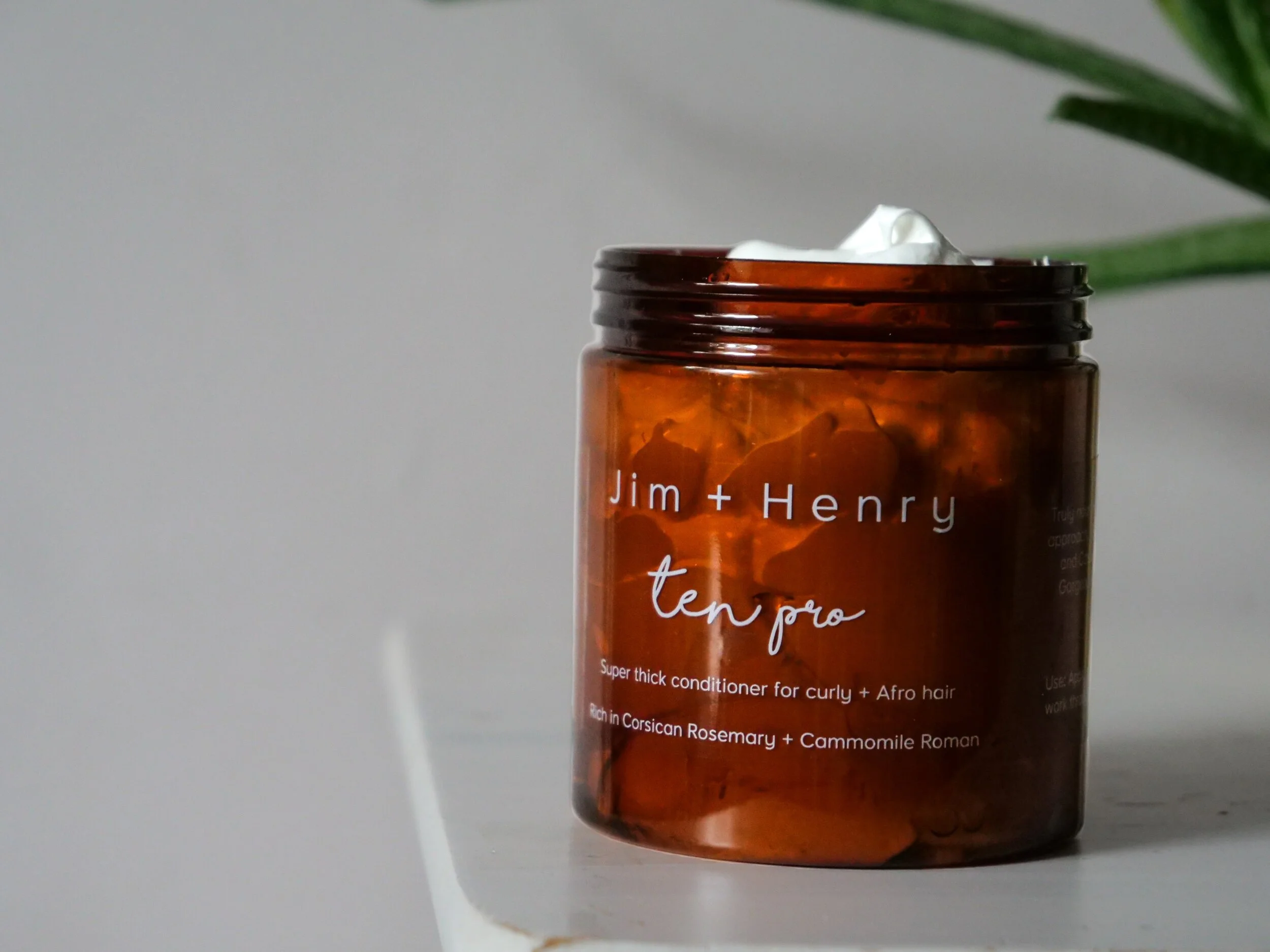
Why you don't need protein
Share

You’ve seen it in the ads, your favourite stylist has said it, and it’s in the curly hair groups: '‘your hair needs protein’. We aren’t talking about food here, but products. Before we delve into what this means and its role in curly hair health, let us reassure you: you don’t need it.
Let’s discuss.
What is protein in haircare?
Hydrolysed protein, often from wool, is the most commonly used protein. Hydrolysed refers to protein molecules broken down into smaller pieces. While this may facilitate some limited penetration, potentially offering benefits to damaged hair, it doesn’t have the same effect on healthy curls that haven’t been damaged.
Studies show varying, inconclusive results. It turns out keratin helps freshly-relaxed hair become more tensile (elastic, ability to stretch without breaking), but other studies show that amino acids have no effect on relaxed hair. It’s a bit frustrating that 1 study shows that topical protein helps hair and another shows that it doesn’t. Which is one of the reasons we can’t trust the claims. But there are some benefits…
Pro-Protein
Protein does help hair when the weather conditions are humid. The research, in one study showed relaxed hair that has been treated with a hydrolysed protein had more stretch than relaxed hair with no treatment. But virgin (unrelaxed hair), had more elasticity and strength overall.
In another study applications of keratin peptides and proteins to bleached hair improved the water absorption properties of hair fibres and reduced their permeability. Which means hair held on to water better than bleached hair that wasn’t treated with keratin.
Cons-Protein
Interestingly the studies have been completed on damaged - relaxed, or bleached - hair. I have yet to find a study that has assessed the effect of protein treatments/ conditioners with protein on natural Afro, curly or wavy hair. That’s because the effect on healthy hair is often zero difference, and purely from an anecdotal perspective using hydrolysed protein on curls that are not damaged or bleached can cause brittleness.

Cut through the noise
So many brands claim that protein ‘fills in gaps’ on natural hair, and that Afro hair naturally has ‘too much protein’. Not only is this information inaccurate because not all Afro hair is thick, but our natural texture is never too much. So many of us have fine Afro hair - Afro refers to the shape of the strands, which with Afro hair means the tighest coil and curl, that’s it.
Whatever you do, avoid the scams of keratin tablets. It is scientifically proven that keratin - what makes up animal hooves, bones, feathers and wool - is indigestible and our stomach acid does not break it down. You just end up pooping it out. Keratin is insoluble in hot and cold water and can't be attacked or digested by proteolytic enzymes (ones that cleave protein molecules).
Keratins in hair are insolluble because of multiple disulphide bonds that we can’t break down in our bodies.
Our range of products are protein-free. Instead, we use natural ingredients that with little manipulation offer slip, detangling, shine and hydration for Afro hair, curly hair, kinks and waves. Protein isn’t a precursor to beautiful or healthy hair in our humble opinion. Natural ingredients do wonders even for bleached curls like this.
Even beauty bible site, Byrdie says “Black hair that’s been severely damaged, an intense protein treatment may save the day—but only for the interim. The truth is, you're only delaying the inevitable. It can help, but it can't reverse anything that has been done. Eventually, you'll need to get a haircut or trim to take care of your fried ends.”
I know, that’s a lot to take in, but we are here to answer questions once and for all, understand trends and see whether anecdotal and scientific evidence backs up popular claims. More research definitely needs to be done in this area, but please don’t eat keratin. Maybe just opt for regular protein in your meals and use one of our leave-in conditioners.
Yours,
Tammy
Links below:
https://www.ncbi.nlm.nih.gov/pmc/articles/PMC7820954/
https://pubmed.ncbi.nlm.nih.gov/18412569/
https://wimpoleclinic.com/blog/keratin-for-hair-benefits-dangers-treatment-types/



